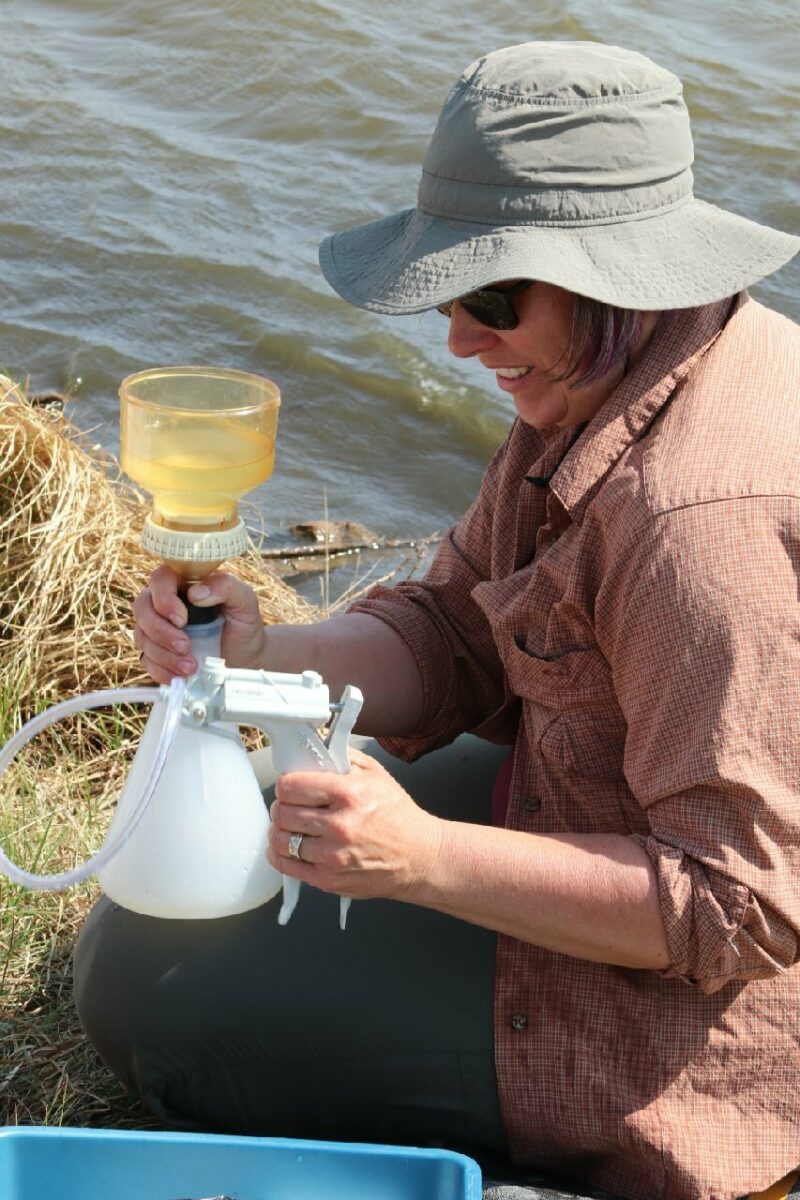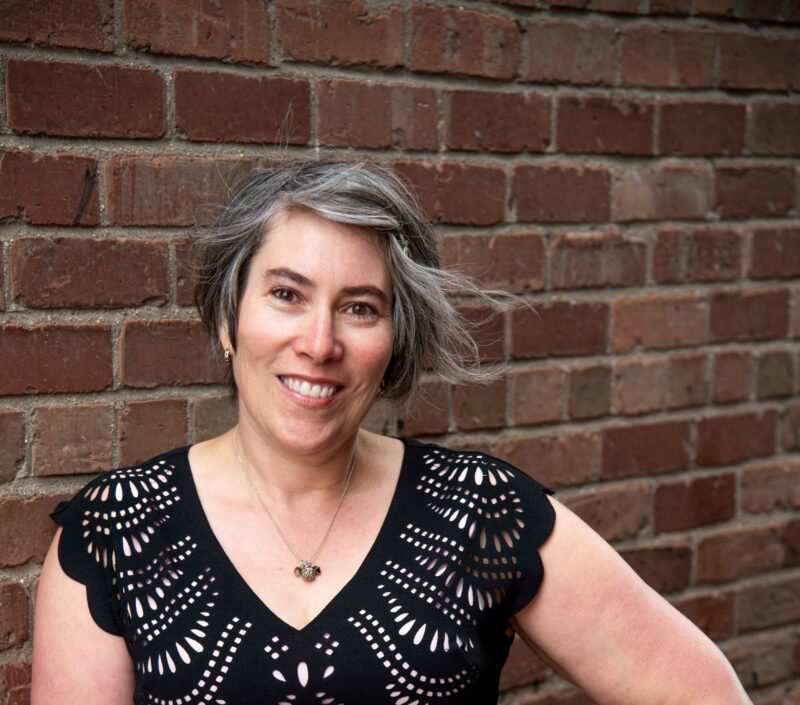Q&A with Dr. Britt Hall, URFA's President
Dr. Britt Hall, Professor of Biology at the University of Regina, began as URFA’s President a few months after COVID-19 brought about swift changes to the way we live and work. We recently spoke with her to learn about how things are going, what she enjoys about this position and her vision for what’s next for URFA.
Your start as President of URFA was perhaps a bit different than expected, given the changes that COVID-19 brought. Did the onset of a global pandemic have an effect on your early days in this role? If so, how?
Yes, in fact it erased a few early days. The [URFA]spring general meeting is set for the end of March of every year and that is when we do the elections for the officers. We went into working from home and full panic mode on March 18 so URFA decided to postpone that meeting until the end of May, and I took up the position in late June, almost a full two months into my first term. We had to figure out a totally new paradigm on how to do the elections with an electronic vote.
I was on my way to a campground on a Friday in June with my kids when I got the call that I had been elected. I had the weekend to think about it and was able to get excited about it.
What prompted you to engage with URFA? What led you to put your name forward for President?
I didn’t know it at the time, but when I was growing up, I was in a pretty union-family friendly. My mom was a teacher. My dad was a linesman in the International Brotherhood of Electrical Workers (IBEW). The IBEW was a big part of his life, but he and my mom were separated and I never really heard too much about it as a kid. As I became an adult, I became close with my dad and learned a little bit more about how union principles impacted his life.
When I was first hired at the University of Regina, I was in a research-focused position that had a low service requirement. When that initial period was over, I decided to join up to get to know more people outside of science and to learn more about the University outside of the walls of my office and lab. That also coincided with the birth of my first kid and, as the only woman tenure-track professor in biology with children, I was looking for connection with people that were new moms in academia. Truthfully, that whole time is such a blur.
I became part of the precursor to the current Council of Representatives as a Faculty of Science representative. Coincidentally, I was denied merit around the same time, and had started to work with URFA for the on a merit appeal, which was successful. The real kicker for me was actually acting as an observer to our contract negotiations and I think this is a fantastic opportunity for members to learn how things work and I really like knowing how things work.
Then I volunteered for the bargaining committee for our last round of academic bargaining. So, I had greater and greater levels of involvement and the opportunity to apply for President presented itself. I do a lot of service and I was finding that my service was really fragmented so I was thinking it would be nice to consolidate that into a larger role.
You mentioned that you like knowing how things work. Did your curiosity, which applies to your research and teaching as a biology professor, also contribute to your desire to become involved with URFA?

I think so. I’ve done things like being an extra on a film because I wanted to know what that is like. When I was a student, I would go on any type of field trip or take any opportunity to see how something works or how it functions. That curiosity has led me to the role I have as an environmental scientist.
Would you like to share any ways your work and research as a biology professor may intersect with your position as President?
One of the things that I presented to the membership when I first had a platform was to try and figure out how we can engage with the faculty surrounding issues around environmental sustainability. Prior to COVID, there was a group of us that had been doing some climate change education. We were really starting to get on a roll of protesting and making our issues known about how society wasn’t taking climate change seriously. It was looking good and then COVID hit. I’d like to explore how URFA could be part of an environmental sustainability conversation going forward.
What are some of the responsibilities with being President?
The Executive of URFA is basically like the Board of Governors of the University. We provide the overview and a vision of URFA and have ultimate financial responsibility. URFA now has a new Executive Director, Dr. Heather Ritenburg, and she comes to us with a great deal of experience with URFA. As she settles into her role, I can start thinking about some of the bigger questions rather than the day-to-day questions that have consumed me since I started.
As President, I chair two committees, the Council of Representatives and the Executive Committee, and participate in others member committees. I also can be the public face of the Union which typically becomes very important when we’re negotiating or with large issues that come up that might be of interest to the community.
One of the roles that I’ve taken on as a direct result of COVID-19 is to engage more with the membership than we have in the past by using virtual platforms. I think this is an important exercise and I hope people continue to take advantage of the opportunity to ask questions. Virtual meetings are also a great tool to engage with members that are not located in Regina. It’ll be interesting to see how virtual meetings are used going forward.
Are there some aspects of the President position you’re particularly enjoying?
The thing I’m enjoying most about this role is how much learning I’m doing. I am constantly learning from Heather Ritenburg, from all of the staff, from our members, from our executive. And it’s not just learning about URFA, but learning about natural justice and unionism and how the University works. There’s a huge learning curve but my teachers have been great and so it’s been really exciting that way.
How would you describe your vision for URFA?
My visions really are task-orientated because that’s the way my brain works. I’ve recently learned how absolutely important criteria documents are for academics. I don’t think many of my peers understand how important they are and how we really need to do better at negotiating those documents in a collegial way so that when we evaluate our peers or if we are evaluated, there’s clear, collegially developed criteria that can be applied in a fair and equitable way.
And equity, of course, is such a huge issue. I’ve done a lot of learning on equity issues over the last half dozen year or so, which means I’m new to the game but I’m trying really hard to better understand that and I would like to continue to help our members understand.
Caregiving in COVID times has been really challenging for me. In some ways, it’s such a simple thing, right? We have some people we need to care for more and we have work to do and we don’t have enough time. But there are no easy solutions and it’s blended with so much intersectionality of who is impacted more or less and how ultimately that means your career is going to be different.

URFA recently finalized its first strategic plan. How will this shape the work of URFA over the coming years?
I love our plan. It gives us the framework about what we value and what our goals are. The issue of education of our members and the public on the importance of the academy, collegial governance and how the academy can actually play a role in how we move forward as a society from this period, excites me.
It’s great that we’ve made a commitment to financial security. I am really excited about that collegial governance part and how we will work to make people realize how universities are such a vital part of our community and how important they are in society in general.
I like the Venn diagram that connects our four strategic objectives — how member engagement is right in the middle and then the three others. They’re all related and it gives the whole picture.
Are there specific questions or topics that URFA members should connect with you about?
I’ve enjoyed connecting with people when they reach out to me as a public face of URFA, but I don’t do the day-to-day work. I most often refer people who reach out to me to our talented staff and I will continue to do that. I do like hearing from people and I think the grander issues are certainly ones that I want to hear about.
From your perspective, what is one little-known thing about URFA that is quite neat?
This may not be so little-known but it probably bears repeating. URFA is distinct in a lot of ways because of the diversity of the people that we represent. We’re representing Administrative, Professional and Technical (APT); Academic; and Sessionals from four different employers.
There’s just so many benefits to having the diversity in views and having this strength in numbers because we can act as a grand collective. Our model isn’t the most prevalent – in other associations there are separate unions for each bargaining unit. So, while there are challenges with having a diversity of membership, it would be much, much more difficult, I think, if we didn’t act as a collective.
Is there anything else that you’d like to share with URFA members and stakeholders?
I would love to hear creative solutions to how return to work, how people envision URFA continues to work, maybe take the best of COVID times and the best of face-to-face times and put them together. What does that look like for people? We’re all going to be starting to think about that now as we enter into this new time. We have such a talented and diverse staff at our universities and that’s what we’re here for, right? We’re here to give those creative solutions to the rest of the world and I want to hear them too.
This interview has been condensed and edited.
